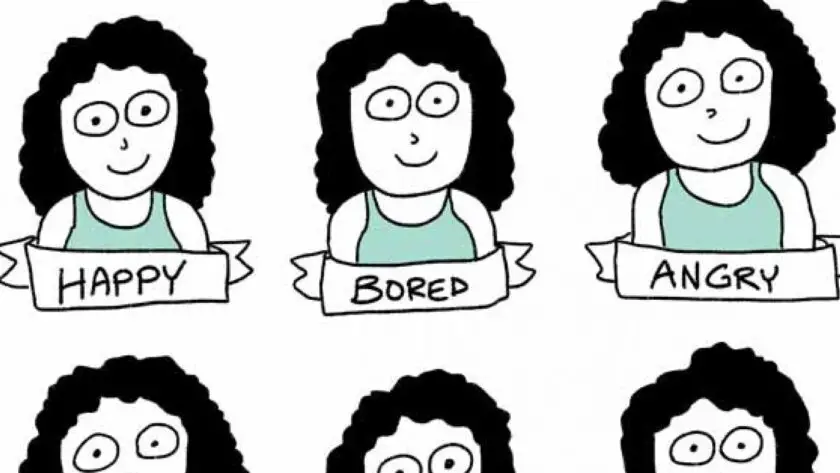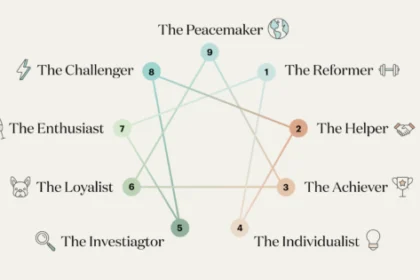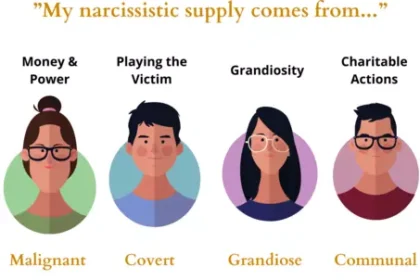Most of us have been in a position where a close friend or family member is confiding in us and they come to a realization and say something to the effect of ‘I think I’m a people pleaser’ to which we respond, gee, maybe! I don’t know. Or, maybe you are. It seems like you act out of a manner more of pleasing people than your own wellbeing at times. People pleasing comes from a place of not having a self worth that is recognized from within.
People pleasing comes from a place of scarcity and lack. It comes from a place of needing something from someone else that YOU can give YOURSELF. What’s important to understand here is that you do not get into the position fo being a people pleaser. It doesn’t fall out of the sky and just happen to land in your lap. People pleasing has roots and it’s important to understand those roots in order to address the trauma behind these unhealthy behavior patterns that are being brought to the surface. With that, let’s explore a bit of how people pleasing begins in the first place so that you can address how to heal these traumas from the roots.
How Does People Pleasing Begin?
People pleasing begins typically in childhood or in an early relationship where the imbalance tilted in their favor. In other words, you were in a relationship where you were lower within the hierarchy than your parent, partner of friend. Whatever it may be. This can typically begin in childhood with parents that have high expectations of their children or are simply very hard on them, even abusive. This leads a child to lean into people pleasing behavior. Walking on eggshells with that parent. Saying, doing, thinking and behaving in a manner that didn’t ruffle their feathers.
People pleasing had a benefit early on, but the cost is too much to carry long term. There was a reward or benefit of being a people pleaser. Maybe you kept the peace in the home. Maybe you received love, words of encouragement and validation when you people pleased for your mother or father.
You were rewarded for negative behavior. Which is a tremendously difficult position to be in. This mentality of being rewarded for being a people pleaser carries over into adulthood and often leads to a codependent mentality in a relationship.
Codependent people tend to attract narcissists in relationships because codependent behavior is what narcissists are looking to have in their life. They need codependent people to use and abuse. Narcissists feel a sense of control, power and safety when they have more control over someone in a relationship.
How Does People Pleasing Change?
People pleasing as a child is different than people pleasing as an adult, but this behavior pattern is more than likely formed during childhood. As a child pleasing your mother, father or another adult is simply doing what you know will give you what you need. A need such as love, affection, appreciation, support, whatever it may be. The challenge here is that the dynamic of the expectation based relationship is not fully understood. As a child you just follow.
As an adult you will question, assess and observe things with a higher level perspective. As an adult if you’re a people pleaser in your life it can and will effect your romantic relationships, your friendships, your family relationships and more. Every single relationship in your life can be effected by you being a people pleaser.
What’s Worse? People Pleasing Creates False Connections
As an adult people pleasers create relationships, friendships and connections to people in all areas of life. People pleasers can often be sucked into relationships that are fake, faulty and not solid. People use people pleasers at their whim. It’s energy and resources that can be utilized. This doesn’t mean that all people in your life will use and abuse you, but it does mean that you’re in a position of weakness to be taken advantage of more often. A good test is to ask your friends, family or partner if they feel you are a people pleaser. Listen with your heart, spirit and truly hear the feedback that is shared with you. You will find the more honest people in your life share the truth with you, and keep it real.
There will be people in your life who simply want you to be aware of who you are, how you operate and want you to have more self awareness. With that being said, let’s dive into 10 signs that you may be a people pleaser and how to address them if so.
10 Signs That You’re A People Pleaser
1. You Cannot Say “No” To Requests
You have a very hard time saying no because you want to be accepted and liked by everyone. This can be in your personal and intimate relationships, romantic too. Your friendships, family, even strangers. You have an idea that the best way to be liked and accepted by everyone is by being overly agreeable and saying yes all the time. Be weary of saying yes or no too often, it reveals how flexible and open you are.
2. You Often Feel Anxious About Others Opinions of You
This mentality stems from insecurity—you have fears about people perceiving you in a way you may not like or that you don’t have control over, so you conform your behaviors to fit into a box that you feel will be more aligned with what their positive perception of you is even if you are not being true to yourself and changing to be more ‘likable’ by others, even though there’s no proof that your inauthentic behavior creates any of this liking back for you. Be careful with overthinking about others perception of you too often. You need to get to a place where you don’t care what others think of you unless it’s coming from a place of positivity, growth (which does require criticism) so don’t be completely closed.
3. You Never Have “You” Time in Your Life
You have to understand that time with yourself is so very important. This is time to self reflect, enjoy peace, as well as to navigate your life with more intention overall. If you don’t schedule any kind of alone time or dedicated time for yourself so that you can always be available for others then you are putting everyone before you and you’ll find your cup getting emptier and emptier. This leads to burnout and not being able to give as fully, defeating the purpose of even being available for others in the first place. Some go so far that if you do have time alone that is disrupted and you’re asked for something during that special you time you make yourself available immediately for them. Take time to slow down and get more comfortable with saying no, instead of yes all the time. Your friend, family member or partner will survive.
4. You Feel Guilt With Setting Boundaries
Boundaries are an important part of life as a whole. You need boundaries in your friendships, and with your partner. If you don’t have boundaries people can easily walk all over you and you have no defense for that continuous assault. You may feel as if others need you more than you need yourself, and because of this you don’t set boundaries because you want to be helpful to them. You may feel bad saying no to others, maybe because you have felt shame or guilt for setting boundaries with these people in the past. If guilt, shame or any other negative emotion is returned to you simply for saying no, setting a boundary or sticking up for yourself you may be with someone who is gaslighting you. This is a traits narcissists use to manipulate people.
5. You Apologize All The Time – Sometimes For Nothing!
This is a common sign of someone who is a people pleaser. They feel sorry more often than they need too, often times for absolutely nothing! Have you ever been around someone who is apologetic for no reason and you tell them “You don’t have to apologize, or say sorry” and they respond to that by saying “sorry” – it’s quite comedic. Its also sad because it reveals that this individual is living their life feeling sorry for being there, sometimes even feeling sorry for existing. What a sad state to be in. If this is you, you may feel as though you are responsible for other people’s feelings and reactions to everything, so you own things in an environment that you don’t even need to and make things your concern that doesn’t have anything to do with you. Recognize that you don’t need to be sorry for your existence, for being who you are. You are special, unique, and handcrafted baby!
6. You Seek And Need Constant Approval
You have a history of needing to get approval from others, so you people-please because of the validation you feel in the short term. The problem is that constant approval is in the moment. It’s temporary, it’s a quick fix. Like a drug it can become addictive and you continuously seek the approval and validation of others all the while ignoring the approval and validation of YOURSELF from WITHIN! It is important to recognize that your approval seeking comes from a place of lack, from a deficiency of love. Maybe you weren’t given or granted this love growing up which lead to the people pleasing behavior early on, in childhood. As an adult however, it is your responsibility to have a self care and self love framework that reminds you that you matter, you are important and that all comes from a deep knowing within, not from words or actions of others outside of yourself.
7.You Tend To HideYour Feelings From Others
You are reluctant to share any feelings with people because you feel as though they don’t matter and other people’s issues are more pertinent than yours anyway. Wearing your heart on your sleeve? Forget about it. You look for people that wear their heart on their sleeve and see how you can help them. This is a noble thing, but if you do not open up and share how you feel and the emotional challenges you face you will not break through and heal from those past pains, hurts and traumas. They will only continue to keep you locked up in a gridlock until you become vulnerable and open to release the past. You can move into the future and find more balance and harmony by being vulnerable with the right people.
8. You Have Low Self-Esteem Often
You may have a history of anxiety, ptsd, depression, trauma (we all have), or any kind of emotional or mental health concern that has led to low self-esteem or low self-worth over time. You cannot look for external validation to fill the holes inside you that require internal work and validation. You must see that self esteem is self oriented, not oriented by others but oriented by you and your SELF. The keyword is self here.
9. You Are Incredibly Agreeable in Order to Be Liked
You may often find yourself saying “yes” to be accepted and succumb to the peer pressure in the room. You feel like this will make people like and accept you becaue people generally do like agreeable people more. They’re less of a hassle, but they can also be less true to themselves and develop unhealthy self-censorship tendencies. This means that instead of speaking your truth you keep your mouth shut and this causes a stir in you. Anger often builds when we cannot be authentic with ourselves and we please others endlessly to no avail.
10. You Fear Being Labeled “Selfish” By Others
You have a fear and are scared of being called selfish because that would be interpreted by you to mean that you’re putting your needs ahead of the needs of others. In reality, selfishness is required in order to be selfless. You cannot be selfless all the time because your cup will empty. Your energy will be deplete and then you’ll be no good to anybody. When you take time for yourself, your mind, your heart, body and soul you take time to replenish, recharge and nourish your vessel. You give from an empty place of from a full place. If you are selfless all the time then you will not be able to have a full cup to give from. Even your own people pleasing tactics (which are empty after a certain point) become useless because your giving eventually depletes itself over time. Take time to be ‘selfish’ despite the negative connotation society has given it. Selfishness allows you to invest in yourself so that you can be selfless from a FULL place.
These are some of the main signs of someone who is a people pleaser. People pleasers tend to have co-dependent tendencies and end up getting into relationships and situations that are unhealthy and not harmonious as a whole. Spend time with yourself, getting to truly know yourself on a deeper level. I have found that journaling is one of the best personal mirrors that I can use. It’s a tool of self-reflection. This helps me create more mindfulness, intention and attention on areas of my life that need it.
If you begin to journal out events or scenarios that you caught yourself people pleasing you can ‘rewrite’ the script for next time. Train your mind to develop in a way that allows for a higher sense of mindfulness and intention. Acting out of integrity with yourself will strengthen parts of you that were once weak, and this will allow you to step into your life with more boldness and purpose! This is my hope for you!
Make sure to bookmark GreenLivingTribe.com, for more health, wellness and relationship articles coming soon!





